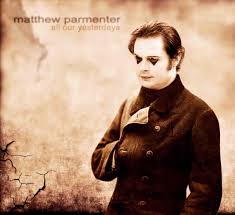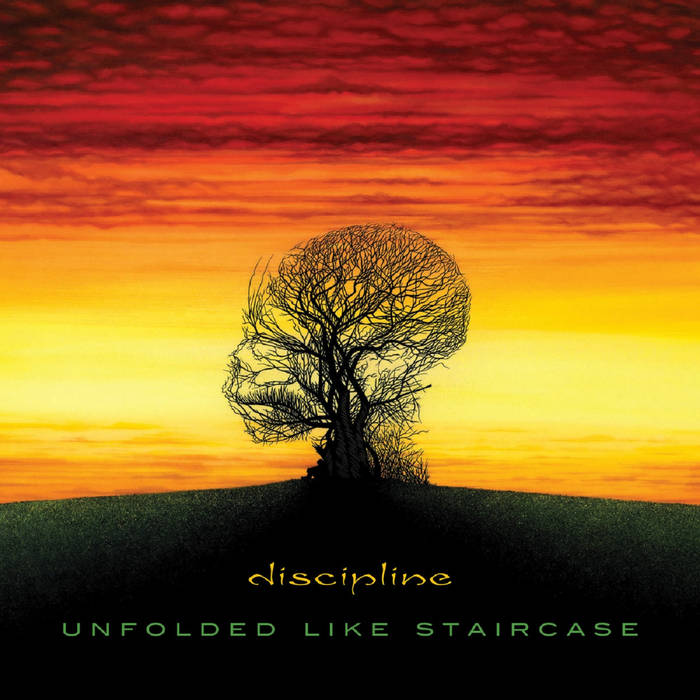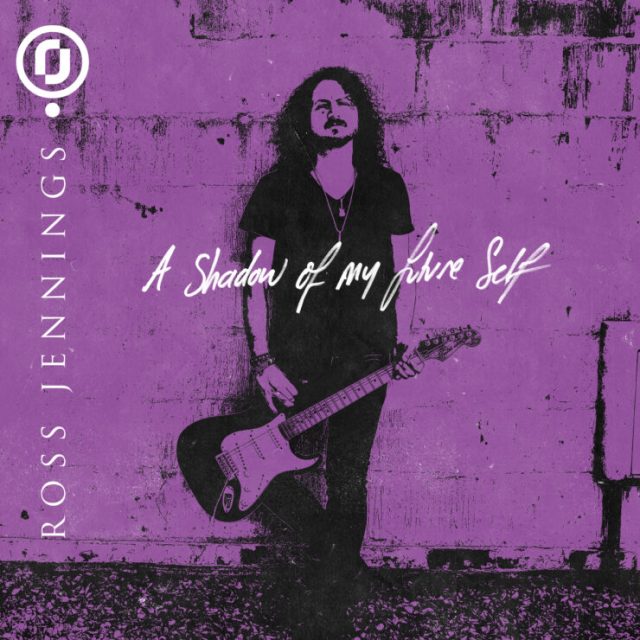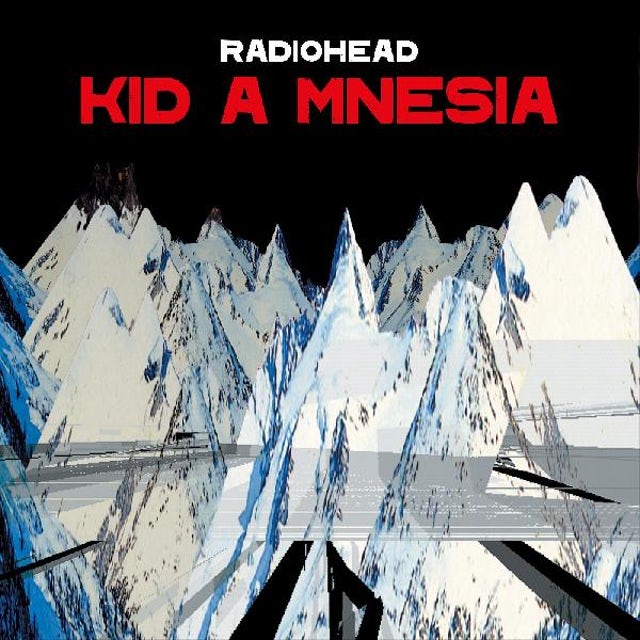I thought I didn’t have a big list of favorites from this year’s listening — until I revisited my six-month survey from back in June and added in the good stuff I’ve heard since then! The listing below incorporates links to full or capsule reviews, or other relevant pieces on Progarchy and elsewhere; albums I haven’t written about yet get brief comments, along with my Top Favorites of the year. Most of these are available to check out online in some form; if you find yourself especially enjoying something, use that Christmas cash and support your choice with a purchase! And the winners are . . .
Continue reading “Kruekutt’s 2021 Favorites!”Tag: Discipline
Rick’s Quick Takes for November
Discipline, Unfolded Like Staircase: a stone cold classic of late 1990s prog, freshly remixed by Rush producer Terry Brown. True, this Detroit quartet wore their influences (Gabriel-era Genesis, 1980s King Crimson, Peter Hammill and Van der Graaf Generator) on their sleeves here, but they also gave them a fresh, arresting spin. As Jon Preston Bouda’s guitar, Matthew Kennedy’s bass and Paul Dzendel’s drums weave grim, mesmeric webs of sound, Matthew Parmenter’s flamboyant vocals and literate scenarios drill deep into existential desperation. Lush, dramatic and riveting, the four twilit epics included here, kicking off with the Dante-influenced “Canto IV (Limbo)”, will get under your skin in a breathtaking way. In short, I believe you need this music; get it on CD or LP from The BandWagon USA or download it at Bandcamp. (Here’s hoping Discipline’s studio follow-up To Shatter All Accord and the live This One’s for England get similar treatment in the near future.)
Ross Jennings, A Shadow of My Future Self: a superbly accomplished, immensely appealing solo debut from Haken frontman Jennings. Recorded during (what else?) COVID lockdown, he spans and mixes genres with ease, diving headlong into folk (“Better Times”), funk with lashings of metal (“Violet”), power pop (“Rocket Science”), cinematic ballads (the moving elegy “Catcher in the Rye”) — oh, and even extended-song-form-verging-on-prog workouts (“Phoenix” and “Grounded”). Jennings is at the top of his game on vocals and guitar, backed by stellar players. And the songwriting is outright wonderful; on every single track, the riffs demand air guitar, the verses demand your attention, and the choruses demand a cathartic singalong. Yes, all of this raises my hopes for Jennings’ upcoming collaboration with Nick D’Virgilio and Neal Morse, but that can wait; this thrilling, eclectic album is a genuine treat in itself. Unquestionably my pick of the month. Get it on CD or LP (merch and bundles also available) at OMerch.
The Pineapple Thief, Nothing but the Truth: whatever the substantial virtues of their studio efforts, The Pineapple Thief’s recent live albums have been where they’ve shone the brightest. Their latest is no exception; filmed for streaming in lieu of their cancelled tour for Versions of the Truth, this 90-minute set finds TPT as brooding, stylish and kickass as ever. Bruce Soord nurses his songs of disillusionment and division through the gathering angst, then opens fire on one blazing chorus after another; Gavin Harrison does the unexpected on drums with astonishing regularity — and yes, I bought the BluRay for the drumcam option! Steve Kitch’s atmospheric keys and Jon Sykes’ throbbing bass are essential ingredients here, not anonymous backing. The new songs gain heightened guts and strength; the dives into the back catalog aren’t just well-calculated, but passionately played, and essential to the set. This one makes me more eager than ever to see The Pineapple Thief when they return to North America next spring. Get it on CD, LP, Blu-Ray video and deluxe artbook box (CD/DVD/BluRay) at Burning Shed.
Radiohead, Kid A Mnesia: a band hard at work tearing down the sound that made them world famous, then rebuilding from scratch. Which somehow made them more famous, given that their first Number One album in America was the result. I’ve always found Kid A gripping stuff; with their wholesale shift to glitchy electronica beats, found-sound patchworks, soupy orchestral backing and sharp-edged noise, Thom Yorke, Jonny Greenwood and company achieved a genuine paradox — alienation embodied in music, that immediately connected with a mass audience. And when Radiohead walked backward into rock on Amnesiac, the success of their breakaway strategy made both guitar-based grooves like “I Might Be Wrong” and off-kilter art-pop like “Pyramid Song” even more effective. This triple-disc reissue pulls the era together with a bonus set of ear-tickling odds and sods: Yorke, the most deliberately unbeautiful of singers, reaches for actual purity of tone on the unreleased songs, while Greenwood scratches his avant-garde compositional itches, courtesy of a full string section. Get it on CD, LP, cassette or download from Radiohead’s webstore.
The War on Drugs, I Don’t Live Here Anymore: a recent immersion course in Adam Granduciel’s ongoing project — regrafting 1980s tropes like tick-tock rhythms and thick ambient textures onto the stock of classic rock — has proved enticing, though not consistently galvanizing. The War on Drugs’ latest slab of Big Rock Redux is their most organic album to date, integrating the blips and blobs with the rootsy muscle of a tight sextet. Whether a given track goes minimal or maximal, each musical backdrop is built in loving, precise detail, and the simple hooks become earworms before you know it. Granduciel’s vocals — his most individual to date — insistently ride the rhythms, his songs meditating on scenes of a dissatisfied youth (“Change”, “Victim”), then finding unanticipated serenity in the quiet victories and encroaching vulnerabilities of middle age (“Living Proof”, the widescreen title track, “Occasional Rain”). This one snuck up on me via multiple evening listens, and now it’s not letting go; see if it grabs you! Get it on LP, CD or cassette from TWoD’s webstore.
Watson’s Best Prog Albums of 2017: Part 3 — TOP TWENTY # # 10 — 1
Having previously (in the last couple days) shared my 20 “Honorable Mentions” and the first half of my TOP TWENTY ( numbers 20 through 11) I come now to the pay-off. The following ten albums are, obviously my favorite discs, but also I submit, The Best 10 Progressive Albums of 2017. Making no apologies for my penchant of melody over rhythm, of consonance over dissonance, I have selected ten works that are heavily laden with beauty and harmony rather than experimentation and edginess (hey! while my friends were listening to the Rolling Stones I was chilling to The Moody Blues)
THE TOP TWENTY: # # 10 through 1
10) COMEDY OF ERRORS/House of the Mind

After their great 2015 release SPIRIT, this Glasgow band returns with their crowning achievement. HOUSE OF THE MIND surpasses their prior releases with a mixture of large-scale symphonic fervor and slower and delicate textured emotionalism. The band is tight and Joe Cairney’s vocals are a real highlight. My favorite tracks are the two longer songs ‘House of the Mind’ and ‘Wandering Jacomus.’ Some of the best new prog is coming from Scotland and Comedy of Errors is perhaps the best of the best. A+
Continue reading “Watson’s Best Prog Albums of 2017: Part 3 — TOP TWENTY # # 10 — 1”

Rick’s Quick Takes: Captives of the Wine Dark Sea by Discipline
by Rick Krueger
As a Detroit native, it’s a bit embarrassing that most of my Motor City progressive rock knowledge has come from — you guessed it — Prog Magazine. That’s where I first came across Tiles and their fluent, anthemic take on mid-career Rush and 1980s neo-prog. From Tiles, it’s been just a hop, skip and jump to their darker, more Gothic peers, Discipline.
There’s definitely an edge to this band, springing directly from Matthew Parmenter’s lyrical “Magic Acid Mime” vision, honed by music that channels and modernizes the gloomy flair of Peter Hammill & Van Der Graaf Generator, the plummy drama of Gabriel-era Genesis, and the hypnotic counterpoint of 1980s King Crimson. Stirring in just enough alt-rock crunch resulted in two minor classics, 1997’s Unfolded Like Staircase and 2012’s To Shatter All Accord; Parmenter’s fatalistic narrative drive and the band’s inexorable momentum shake you up and sweep you along — usually toward an unavoidable crash landing.
For Captives of the Wine Dark Sea, Tiles’ guitarist Chris Herin joins the veteran roster of Parmenter on vocals and keys, Matthew Kennedy on bass and Paul Drendzel on drums; Terry Brown (yes, he of “Broon’s Bane” fame from Rush’s Exit Stage Left) produces. Clocking in at just over 45 minutes, the new album doesn’t waste time or motion, as Parmenter fires off sardonic verbal volleys at the futilities of aging (“The Body Yearns”), the white collar working world (“Here There Is No Soul”), desire (“Love Songs”) — even creativity itself (“Life Imitates Art”). The music, subtly powerful and accomplished, carries the words with an appropriate gravity. Herin’s licks and tone provide plenty of style and color, Parmenter weaves enticing, compelling keyboard webs, and the rhythm section is rock solid.
Building from lullaby to anthem to fiery guitar/synth playout, the 15-minute finale “Burn the Fire Upon the Rocks” aptly sums up Discipline’s aesthetic: rage against the dying of the light — but keep moving as you do it, and find comfort where you can. Not exactly fun or even contented, but triumphant on its own stubborn terms. On Captives of the Wine Dark Sea, Matthew Parmenter and company stoically look failure and frustration in the face, leaning into the understated strength of their music to make it through.
You can listen to (and buy) Captives of the Wine Dark Sea at Bandcamp: https://lasersedge.bandcamp.com/album/captives-of-the-wine-dark-sea

All our Yesterdays

Released today on the small but mighty Bad Elephant Music label, All our Yesterdays is Discipline front man and songwriter Matthew Parmenters third solo release, following up 2008’s Horror Express.
Parmenter is a unique talent, and I will put it out there straight away that this album will be a Marmite album to many, there will be people out there who love this work, and people who will find it too idiosyncratic and left field for their tastes.
This however is not a bad thing, it’s wonderful as a reviewer to receive an album that grabs you by the back of the neck from the get go, and if you’re wondering where my tastes fall, I am firmly in the former camp. Basically I love this record.
I will admit now that whilst I’ve heard of Discipline and of Matthew Parmenter, this is the first time I have ever heard any of his music, and when my bank manager hangs their head in despair as I investigate his intensive back catalogue I can only blame David Elliott and BEM for introducing me to this music.
The album itself is performed entirely by Parmenter (with only Discipline drummer Paul Dzendzel playing on 4 tracks) so to all intents and purposes it is a truly solo work, and yet Parmenters virtuoso playing and complex arrangements make it sound like he’s backed by a full band.
There are shades of Peter Hammill/Van Der Graaf Generator on this album, (another artist/band who are uncompromising in their musical vision as Parmenter) particularly on the keyboard and piano driven Digital with some fantastic vocal work which brings mid-seventies Hammill to mind, again not a criticism as Matthew Parmenter is as creative and original musical visionary as Hammill is.
The impressive title track, showcases Parmenters musical talents, with a blistering guitar solo, and his fantastic vocal range is entirely taken from the works of Shakespeare, and I can just visualize him performing this on stage, pouring his heart out into the ether.
The BEM website encourages you to listen in full as this musical work is ‘best experienced as a single, all-encompassing musical odyssey’, normally as I’m a contrary Yorkshireman I ignore all listening instructions and get into the record in my own way, but BEM are right, this is an immersive experience, and whilst it sounds good booming through the stereo, it sounds even better on headphones, sat by a swimming pool in Fuerteventure drinking a cool beer (guess what I listened to on my holidays?)
In all seriousness, the musical dynamics are designed for an intimate listening experience, and the arrangements fall somewhere between the epic sound of early Queen (particularly on dramatic opener Scheherazade, and the powerful I am a Shadow) and the classical music meets rock of Jon Lords 1970’s solo work. Whilst the keyboard and piano driven work on the brooding and sinister All for Nothing acts as a backdrop for Parmenters impassioned and powerful vocals, whilst the sax that kicks in brings Van Der Graaf Generator back to mind.
Meanwhile the piano driven pop of Stuff in the Bag showcases another side to Matthews talent, as he goes from dark to light with a quick mood change that should jar, but fits seamlessly into the record as a whole. Whilst the closing epic Hey for the Dance brings the record to a fantastic close, with Parmenters vocals and the folk influenced closing coda culminating in a genuinely uplifting piece of music, that launches into an extended rock fade.
Listening to the arrangements, the depth and power that is present throughout this epic work, its hard to imagine that there isn’t a full band in the studio and an orchestra hiding out somewhere as well, it’s a testament to Parmenters skill and vision that his concept works throughout from start to finish.
I hesitate to refer to the works on this album as songs, as they are more like movements in a musical symphony, harking back to the days when progressive rock meant moving forward and pushing the recorded form to se how far you could get away with and how creative you could be with the medium,
A lot of contemporary bands on the scene have certainly forgotten the true meaning of progressive rock, Matthew Parmenter hasn’t.
He has released a contemporary concept album, as fresh and original as anything I’ve heard so far this year, and yet clocking in at around the 40 minute mark it never overstays it’s welcome, and would easily fit on one side of a C90 tape to pop in your walkman.
Like I said earlier this Matthew Parmenter is a unique talent, and this album isn’t going to be everybody’s pint of bitter, however I would rather hear a record that is striking, original and polarises opinion than a record that just sits there and you think ‘Well, it’s alright innit?’
This is an astonishing piece of work, and to all of you who’ve pre-ordered it and are waiting for the thump at the letterbox, you are in for a real treat my friends.
Discipline: The Phenomenology of Prog (Part 1)
Socrates: “But what you call ‘self-indulgence’, is it not rather a kind of discipline?”
Phaedrus: “What do you mean, Socrates?”
Socrates: “Do people not say of prog songs that they are very long?”
Phaedrus: “Yes.”
Socrates: “Well, is it harder for a musician to play a short song or a long song?”
Phaedrus: “That depends on how difficult the song is, I think.”
Socrates: “Are not prog songs usually more difficult and complex? At least that is what people also say about them.”
Pheasdrus: “Yes, there are the changing time signatures that we mentioned earlier.”
Socrates: “Well then, do not long songs with things like changes in time signatures require a higher level of skill to play?”
Phaedrus: “It certainly seems so.”
Socrates: “Well then, that is what I mean about prog being a kind of discipline. Perhaps no musician could play such songs without having achieved the opposite of self-indulgence; namely, a kind of discipline.”
Phaedrus: “Yes, I imagine it is some form of envy or resentment that leads people to call prog ‘self-indulgent’.”
Socrates: “Perhaps in some cases it could become self-indulgent, but only when the discipline goes awry. Because what seems to be the essence of prog is that it is in fact a kind of discipline.”
Phaedrus: “But exactly what kind of a discipline, Socrates? For it seems that if it were simply a skill like the skill of playing instruments or singing well, then how would the essence of prog be any different from any other type of music where songs are played well?”
Socrates: “By the dog, Phaedrus! I believe you have hit upon the main difficulty in our quest. If prog is a kind of discipline, how then is its essence different from other types of skill or art?”
Phaedrus: “Which returns us to your earlier question…”
Socrates: “Indeed! If we can solve the question of what kind of discipline prog is, then do you think we could answer the question that began our discussion earlier on: namely, ‘Can prog be taught?'”
Phaedrus: “I do, Socrates.”







